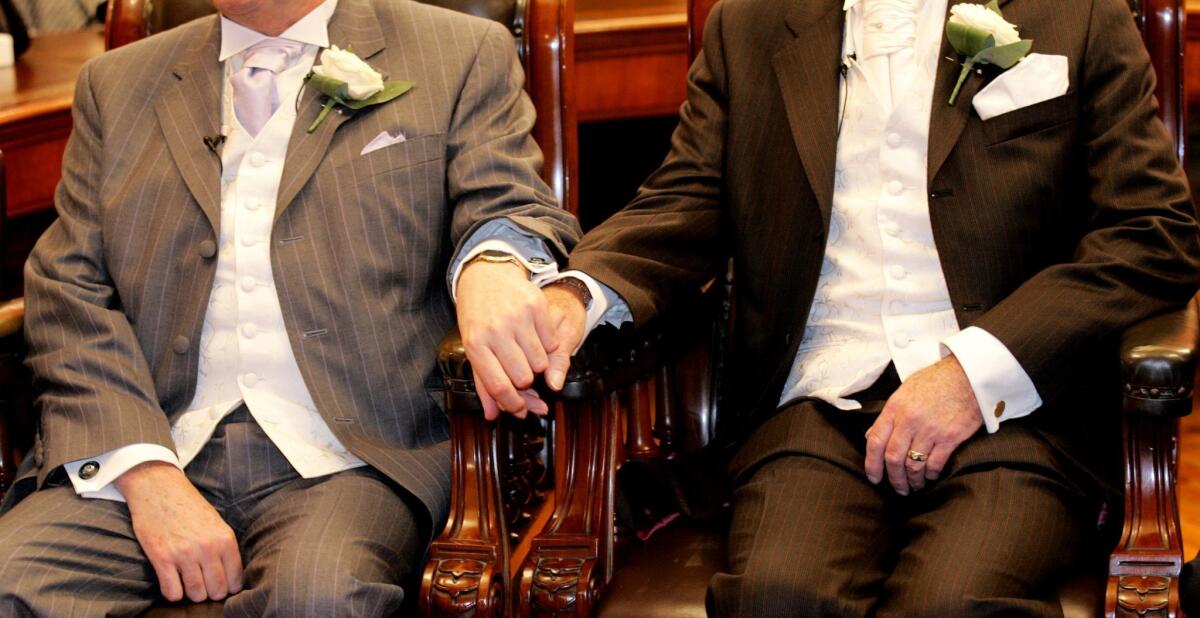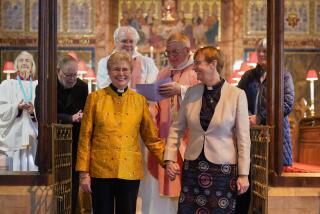Gay marriage across the pond

In voting to legalize same-sex marriage, Britain’s House of Commons has proved that a tradition-conscious society can also adapt to social change. Enactment of the legislation, which is also expected to pass the House of Lords after some additional action in the Commons, would put to shame politicians here in Britain’s most powerful former colony who continue to resist the legalization of civil marriage for gay and lesbian couples. But it also demonstrates that support for marriage equality is compatible with conservative views on other issues, a reality Republicans in the United States should ponder.
The vote to permit same-sex marriage in England and Wales was 400 to 175. (Parliaments in Scotland and Northern Ireland may consider the question separately.) The margin would have been even more lopsided if Prime Minister David Cameron, who supported the bill, had followed usual parliamentary practice and demanded that all members of his Conservative Party follow his lead in voting for the measure. Instead, the vote was a “free” one in which members of his party were allowed to vote their consciences.
Liberated from party loyalty, more than half of the 303 Conservatives either opposed the legislation, abstained or simply didn’t vote. Still, it’s remarkable that 127 Conservatives supported the bill, joining members from the Labor and Liberal Democrat parties who overwhelmingly backed it. It’s also notable that Cameron himself saw support for marriage equality as a bridge to younger voters whose support will be vital to the party’s future.
TIMELINE: Gay marriage chronology
So what does the vote have to do with the United States? It’s important not to exaggerate the similarities between the political cultures of the U.K. and the U.S. One obvious difference is that this country is a union of 50 “sovereign” and diverse states and that laws defining marriage are traditionally enacted at the state level. That fact figures in one of the arguments against the federal Defense of Marriage Act that is now before the Supreme Court. The act prohibits the federal government from recognizing same-sex marriages even when authorized by state law.
Britain is a distinctly more secular society. Although the Church of England and the Roman Catholic Church in Britain object to same-sex marriage, sponsors of the legislation were able to neutralize their opposition by making it clear that churches wouldn’t be required to perform religious ceremonies for same-sex couples. In the case of the Church of England, which is “established by law,” the bill went even further by actually forbidding the church to perform same-sex ceremonies.
In the United States, religious opposition to same-sex marriage is more potent, and not just at the state level. For example, the U.S. Conference of Catholic Bishops opposes repeal of the Defense of Marriage Act, arguing that the law “takes into account the distinguishing properties of unity and procreation that mark the relationship of husband and wife.”
Yet that opposition is not as formidable as it once was. It didn’t prevent voters in Maine, Maryland and Washington state from authorizing same-sex marriage in last year’s elections. And, regardless of their religious views, younger Americans are more supportive of marriage equality than are previous generations. The same is true of younger Britons.
Approval of same-sex marriage in Britain probably wouldn’t have a direct effect on the debate in this country. But the vote in the House of Commons reflects trends that are occurring in both societies.
After their sorry showing with Latino voters in last year’s elections, some prominent Republicans abruptly discovered the wisdom of comprehensive immigration reform, including a path to citizenship for millions of immigrants living here illegally. Might Republicans experience a similar epiphany on same-sex marriage? There was a time when it was inconceivable that a Conservative prime minister of Britain would insist, as Cameron did, that allowing gay couples “is, yes, about equality, but it’s also about making our society stronger.” It may not happen tomorrow, but at some point similar words will issue from the mouth of a leader of this country’s small-c conservative party.
More to Read
A cure for the common opinion
Get thought-provoking perspectives with our weekly newsletter.
You may occasionally receive promotional content from the Los Angeles Times.










